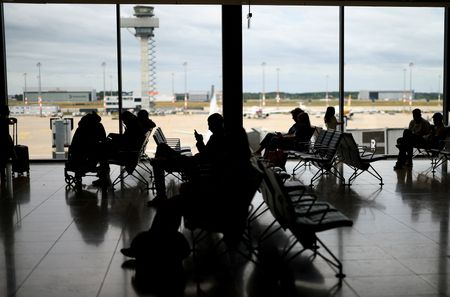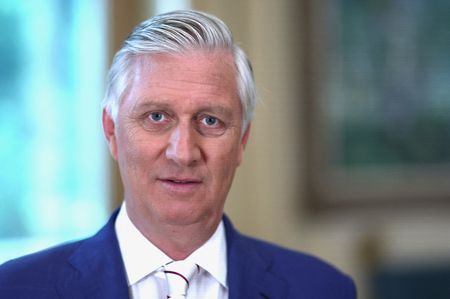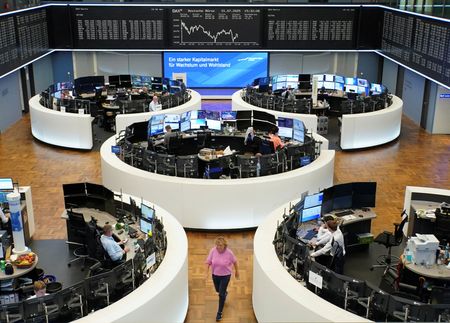By Christian Kraemer and Klaus Lauer
BERLIN (Reuters) -A cut in Germany’s air traffic tax will not be prioritised in the 2026 budget, a government source said on Monday, pushing back against a media report that raised hopes in the aviation industry of a reduction next year.
International airlines have long complained that flying to and from German airports is too expensive and threatened to reduce their presence in the country, with budget carrier Ryanair among the loudest critics.
Earlier on Monday, the Bild newspaper reported that a government pledge to reverse the previous coalition’s increase in the air traffic tax could come as early as next year, sending shares in Lufthansa briefly upwards. But a government source said such a move would be tricky and require budget cuts elsewhere.
“There is currently no foreseeable room for manoeuvre in the federal budget,” the source told Reuters.
One option for scrapping the tax hike, which would cost roughly 500 million euros in tax revenue annually, would be to plug that gap with savings in the transport and economy ministry budgets, the source added.
Bild reported that the transport ministry would push for a reversal in the tax in budget discussions.
“The increase in air traffic tax must be cancelled, and charges at German airports must also be reduced,” the newspaper quoted Christoph Ploss, the government’s tourism policy coordinator, as saying.
The coalition government under Chancellor Friedrich Merz has vowed to ease the financial burden on aviation, including by reversing the higher air traffic tax, but had not given a timeline in its coalition agreement.
German Finance Minster Lars Klingbeil is expected to present the draft 2026 budget next week, with companies watching closely for promised relief despite pressure on state coffers from ramped-up spending on defence and economic uncertainty.
The air traffic tax increase came into effect in May 2024, raising the surcharge for short-haul flights from 12.48 euros per ticket to 15.53 euros.
Ploss said the previous government, led by the Social Democrats who are now junior partners in the current coalition, had made holidays more expensive for millions of Germans.
“A well-deserved holiday in Mallorca must not become unaffordable,” he added.
(Additional reporting by Rachel More; editing by Matthias Williams and Christina Fincher)










